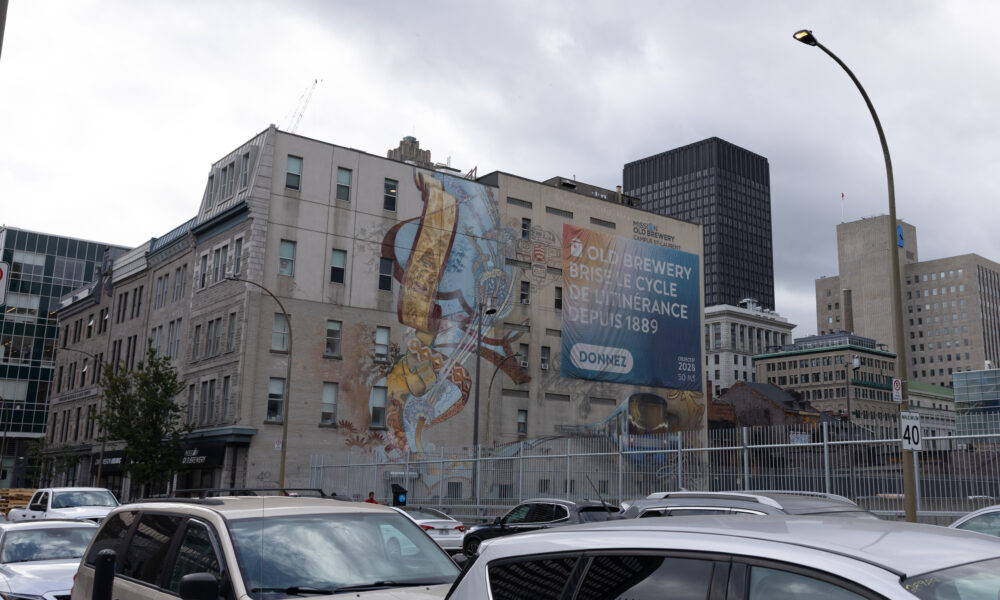Montreal’s new $2 million CAD housing fund demonstrates an increased political resolve to aid the city’s unhoused population. The fund is dedicated to the expansion of housing non-profits; Plante’s government aims to double the number of housing units available for unhoused individuals. The city is dividing the funding among four non-profit organizations dedicated to developing below-market housing: Old Brewery Mission, Gérer son Quartier, Interloge Centre-Sud and Corporation Mainbourg. This initiative is expected to add roughly 6,300 units, offered below market rates, over the next decade. Old Brewery Mission, in particular, will receive $400,000 CAD to help finance 237 new apartments by 2028.
This announcement comes in the wake of an intensifying capacity crisis among homeless shelters in Montreal, forcing some shelters to turn individuals away and others to offer overflow visitors nothing but chairs to sleep in. Quebec’s health department reports that ‘visible’ homelessness increased by 33 per cent in Montreal and 44 per cent in Quebec between 2018 and 2022. In recent years, encampments have also become increasingly common in Montreal, but the city often targets and dismantles these temporary settlements, forcing unhoused individuals to constantly relocate.
However, this funding initiative comes against a backdrop of troubling policy decisions that reveal Montreal’s contradictory approach to its unhoused population. The STM’s closure of the Atwater metro entrance last winter—a crucial warming space—exemplifies the city’s pattern of displacement over care. Such hostile policies, from metro closures to the dismantling of encampments, prioritize pushing vulnerable people out of sight rather than addressing root causes. The $2 million housing fund represents a step in the right direction, but it cannot exist in isolation from these exclusionary practices. The city must reconcile its commitment to creating housing units with its simultaneous deployment of hostile architecture and exclusionary policies that treat unhoused people as problems to be removed rather than community members deserving of dignity and protection.
Long-term units like the ones Old Mission Brewery is constructing provide unhoused individuals more stability, dignity and long-term support. For instance, last year, Old Mission Brewery began turning open dormitories with bunk beds into small private rooms offering more privacy and dignity for unhoused individuals. These more welcoming spaces, known as ‘chambrettes’ allow unhoused individuals to sleep in a quieter environment, providing more privacy and safety.
Investing in stable, affordable housing for the unhoused population also reduces the costs of homelessness in the long run. For instance, in Montreal, the health, social, and judicial services for unhoused people with mental illnesses costs more than $55,000 CAD per person per year. The benefits of this municipal investment in addressing the housing crisis are mutually reinforcing.
After Plante unveiled this fund, the upcoming November election has brought housing policy to the forefront of political debate. Luc Rabouin, the Projet Montréal candidate running to succeed Plante in the November election, expressed his plan to increase the funding envelope to $5 million CAD next year if he is elected. Meanwhile, Ensemble Montréal‘s Soraya Martinez Ferrada has promised to develop at least 2,000 transitional and permanent housing units with psychosocial support during her first term and create a $10-million CAD matching fund to encourage private and philanthropic contributions toward homelessness initiatives. Transition Montréal’s Craig Sauvé opposes dismantling encampments and proposes increasing property taxes on wealthy homeowners to fund homelessness initiatives. Futur Montréal‘s Jean-François Kacou put forth a policy to partner with the city’s hotel industry to offer monthly packages for citizens experiencing temporary involuntary homelessness..
The diversity of approaches among candidates raises critical questions about Montreal’s future relationship with its unhoused population. Will the next administration prioritize housing-first solutions that foreground humanity and empathy towards its vulnerable residents, or will it continue the pattern of dismissal and displacement? As voters head to the polls, they must consider which vision aligns with the kind of city Montreal aspires to be—one that treats housing as a human right, or one that continues to criminalize poverty. The choice facing voters, and their prospective candidates is not merely about housing policy—it’s about what kind of community we want to build together.









